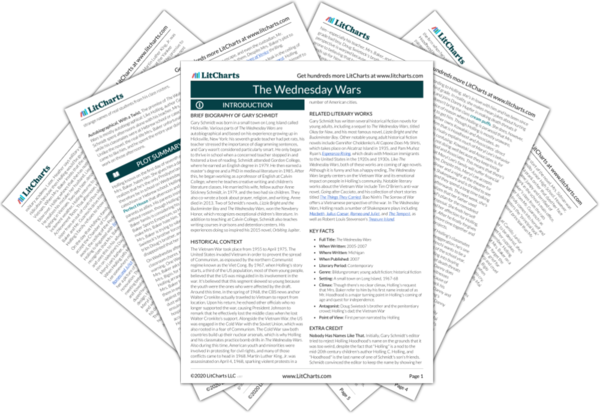The week before Thanksgiving is an awful week for
Holling. His classmates whisper about him after the cream puff incident, and when he goes to pick up his script and costume for
The Tempest, he learns he's going to play Ariel. Ariel is a fairy, and the costume includes yellow tights with white feathers in an unmentionable place. Holling tries to refuse the part, but
Mr. Goldman insists. Later, when Holling tries to ask
his dad for an advance on his allowance, his dad says that no son of his would ask for something so ridiculous.
